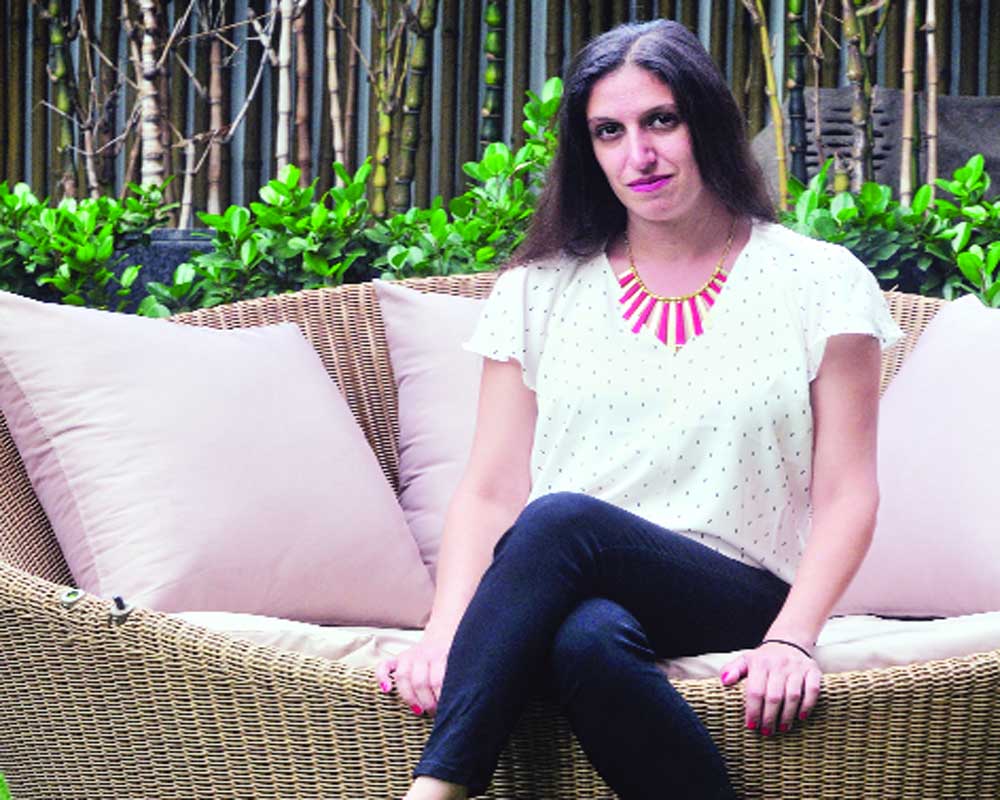Israeli lawyer Ori Turkia feels that we need to figure out creative ways to treat the challenges of inequality and get to its root without putting our gender glasses on. By Sakshi Sharma
The nationalities might change but the only constant for women are issues and challenges related to their empowerment. Or so discovered Ori Turkia Shelas, an Israeli lawyer who works in the field of labour and employment. She was in for a shock, as a discussion with 15 Indian women comprising lawyers, former judges, social rights activists and heads of legal committees progressed, as she was unaware that they have the same road to cover as that of their Israeli counterparts.
A question that naturally sprung to her mind was, “Is it the same everywhere?” which she answered herself, “It was very interesting to know this from different people coming from across various disciplines. We came together to discuss cross border issues like domestic violence, traditional society and bias against women.” She seemed excited about how this discussion made her see things with a wider perspective.
There are various ways open to ensure equal rights for women, one of which is legislation. But, when we talk about its applicability on the ground level it appears that a lot needs to be done on this front. Ori says, “Both countries have a lot of legislation for the benefit of women but we are still fighting for equality because only this won’t help. We will have to figure out some creative ways to treat these challenges of inequality and look at every problem in a holistic way and not individually.” This will help us get to the root without putting on our gender glasses. Achieving change requires policy and programme actions that will improve women’s access to secure livelihoods and economic resources.
Safety has been a major concern for women that looms across every street. Women from all walks of life have to fight for even basics like secure transport and workplaces. Ori said, “Since childhood we educate girls to be careful and remain alert wherever they are. This restricts forward movement which is one of the core challenges.” So what can be done about this problem which plagues the society? “I don’t know how to change it because this inequality is everywhere, in every strata and profession, be it the labour force or the field of medicine or politics,” added she.
Comparing the situation of both the countries she said, “The labour and employment situation is better in Israel in some ways but a lot needs to be done.” She then stressed upon fighting the challenges together rather than comparing the countries as she feels, the world would have been a better place to live in without borders.
Talking about the positives, she said, “A 100 years ago, women were the property of their husbands or fathers but now this has changed in many countries. We have progressed but there is still a lot more to think and do.” Not only is there a need to improve the quality of life for women but also broaden their horizons and bring significant opportunities for them across a range of sectors. “We need to educate them about feminism and allow them to go to work so that they become self-reliant,” she added. This would play a crucial part in empowering them and becoming agents of change.
Ori said, “Synchronising legislation, activism and education can make a big difference. We have many legislations in Israel but nobody enforces them because it’s just written somewhere and that’s it. If it is coupled with activism, things would have moved differently.”
She heads the social assistance department at WZO, an NGO in Israel which fights for women’s rights, provides consultation about family and labour laws and has been advocating equal rights for them since 1951. To make an impact through this NGO, she said, “We conduct ground level research and then take that data to legislation to frame and change policies.” She trains people with similar mindsets in batches. “We combine our forces to teach Druzian women who are much more religious and engrossed in traditions than we are. A group of orthodox women have a very different perspective of leadership from ours. They have a much longer distance to travel than we do. she said. She believes that leadership programmes for women need to be conducted in a manner in which those with similar mindsets can be placed under one umbrella and treated.
However, in the current scenario she said, “We see a tremendous backlash of legislation. There are politicians and activists against us, trying to curb our voices. They say, ‘Stop, you have gone too far, now go back to the kitchen.”’
Coming back to the solution, she feels educating women is the best possible way. When we reverted by saying that we also need to educate our men for the same, she couldn’t help but agree more.


























